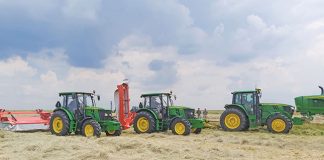CapeNature acting CEO, Dr Kas Hamman, denied these claims saying that the provincial government wanted farmers and CapeNature to reach agreement on the control of problem animals in the province. They were not trying to force discussions in a certain direction. In April last year the Western Cape ministry for environmental affairs, under the leadership of Anton Bredell, decided to issue temporary six-month hunting permits to farmers, allowing night hunting of problem animals, particularly black-backed jackal, caracal and bushpig.
This served as a short-term solution to what farmers have termed a predator plague. It also cut through bureaucratic delays farmers were experiencing with the hunting permit system while CapeNature and the industry drafted a provincial protocol for a long-term solution for problem animal control. Max Ozinsky, ANC spokesperson for environmental affairs in the Western Cape and a member of the provincial parliament, accused the DA of issuing these licences without following due process, to win support from farmers.
Since then, the Landmark Foundation, a predator conservation organisation, and members of the public have criticised CapeNature for buckling under pressure and ignoring the findings of the literature review on the control of problem animals by allowing certain lethal management methods. Hamman denied this. “The literature review commissioned by CapeNature clearly indicates that a holistic, non-lethal approach is the most acceptable and sustainable,” he said.
“However, the report also indicates that the selective use of lethal control methods in combination with a holistic approach may need to be implemented in areas where the predator-prey balance has been disturbed.” Bredell denied allegations of placing political pressure on CapeNature to allow lethal control methods. He said that much stricter rules applied for the management of damage causing animals on farms in the Western Cape than in any other province and a decision was made to review these regulations at the request of livestock farmers in the Western Cape.
Some of the management methods that have been written into the draft protocol include call- and- shoot at night, trap cages, leg-hold devices (soft traps), trained hound packs and small stock protection collars. Farmers were still concerned that the provisions in the provincial protocol were much stricter than the rules that applied in other provinces. “It is only in the Western Cape that farmers are expected to have permits to control damage causing animals by means of call and shoot at night for example, on their own property,” said the provincial chairperson of the Predation Management Forum, Thys Delport.










